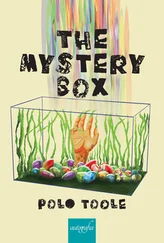John Toole - A Confederacy of Dunces
Здесь есть возможность читать онлайн «John Toole - A Confederacy of Dunces» весь текст электронной книги совершенно бесплатно (целиком полную версию без сокращений). В некоторых случаях можно слушать аудио, скачать через торрент в формате fb2 и присутствует краткое содержание. Год выпуска: 1980, Жанр: Современная проза, на английском языке. Описание произведения, (предисловие) а так же отзывы посетителей доступны на портале библиотеки ЛибКат.
- Название:A Confederacy of Dunces
- Автор:
- Жанр:
- Год:1980
- ISBN:нет данных
- Рейтинг книги:5 / 5. Голосов: 1
-
Избранное:Добавить в избранное
- Отзывы:
-
Ваша оценка:
- 100
- 1
- 2
- 3
- 4
- 5
A Confederacy of Dunces: краткое содержание, описание и аннотация
Предлагаем к чтению аннотацию, описание, краткое содержание или предисловие (зависит от того, что написал сам автор книги «A Confederacy of Dunces»). Если вы не нашли необходимую информацию о книге — напишите в комментариях, мы постараемся отыскать её.
A Confederacy of Dunces — читать онлайн бесплатно полную книгу (весь текст) целиком
Ниже представлен текст книги, разбитый по страницам. Система сохранения места последней прочитанной страницы, позволяет с удобством читать онлайн бесплатно книгу «A Confederacy of Dunces», без необходимости каждый раз заново искать на чём Вы остановились. Поставьте закладку, и сможете в любой момент перейти на страницу, на которой закончили чтение.
Интервал:
Закладка:
“Yeah, and Ignatius got him a master’s degree and all.”
“What in the world was he doing?”
“Nothing. Just standing waiting for his poor, dear momma.”
“His outfit is a little bizarre. I thought he was a performer of some sort when I first came in, although I tried not to imagine the nature of his act.”
“I keep on telling him about his clothes, but he won’t listen.” Mrs. Reilly looked at the back of her son’s flannel shirt and at the hair curling down the back of his neck. “That’s sure pretty, that jacket you got.”
“Oh, this?” the young man asked, feeling the velvet on the sleeve. “I don’t mind telling you it cost a fortune. I found it in a dear little shop in the Village.”
“You don’t look like you from the country.”
“Oh, my,” the young man sighed and lit a Salem with a great click of his lighter. “I meant Greenwich Village in New York, sweetie. By the way, where did you ever get that hat? It’s truly fantastic.”
“Aw, Lord, I had this since Ignatius made his First Communion.”
“Would you consider selling it?”
“How come?”
“I’m a dealer in used clothing. I’ll give you ten dollars for it.”
“Aw, come on. For this?”
“Fifteen?”
“Really?” Mrs. Reilly removed the hat. “Sure, honey.”
The young man opened his wallet and gave Mrs. Reilly three five dollar bills. Draining his daiquiri glass, he stood up and said, “Now I really must run.”
“So soon?”
“It’s been perfectly delightful meeting you.”
“Take care out in the cold and wet.”
The young man smiled, placed the hat carefully beneath his trench coat, and left the bar.
“The radar patrol,” Ignatius was telling Darlene, “is obviously rather foolproof. It seems that the cab driver and I were making small dots on their screen all the way from Baton Rouge.”
“You was on radar,” Darlene yawned. “Just think of that.”
“Ignatius, we gotta go now,” Mrs. Reilly said. “I’m hungry.”
She turned toward him and knocked her beer bottle to the floor where it broke into a spray of brown, jagged glass.
“Mother, are you making a scene?” Ignatius asked irritably. “Can’t you see that Miss Darlene and I are speaking? You have some cakes with you. Eat those. You’re always complaining that you never go anywhere. I would have imagined that you would be enjoying your night on the town.”
Ignatius was back on radar, so Mrs. Reilly reached in her boxes and ate a brownie.
“Like one?” she asked the bartender. “They nice. I got some nice wine cakes, too.”
The bartender pretended to be looking for something on his shelves.
“I smell wine cakes,” Darlene cried, looking past Ignatius.
“Have one, honey,” Mrs. Reilly said.
“I think that I shall have one, too,” Ignatius said. “I imagine that they taste rather good with brandy.”
Mrs. Reilly spread the box out on the bar. Even the man with the racing form agreed to take a macaroon.
“Where you bought these nice wine cakes, lady?” Darlene asked Mrs. Reilly. “They’re nice and juicy.”
“Over by Holmes, sugar. They got a good selection. Plenty variety.”
“They are rather tasty,” Ignatius conceded, sending out his flabby pink tongue over his moustache to hunt for crumbs. “I think that I shall have a macaroon or two. I have always found coconut to be good roughage.”
He picked around in the box purposefully.
“Me, I always like some good cake after I finish eating,” Mrs. Reilly told the bartender, who turned his back on her.
“I bet you cook good, huh?” Darlene asked.
“Mother doesn’t cook,” Ignatius said dogmatically. “She burns.”
“I used to cook too when I was married,” Darlene told them. “I sort of used a lot of that canned stuff, though. I like that Spanish rice they got and that spaghetti with the tomato gravy.”
“Canned food is a perversion,” Ignatius said. “I suspect that it is ultimately very damaging to the soul.”
“Lord, my elbow’s starting up again,” Mrs. Reilly sighed.
“Please, I am speaking,” her son told her. “I never eat canned food. I did once, and I could feel my intestines starting to atrophy.”
“You got a good education,” Darlene said.
“Ignatius graduated from college. Then he stuck around there for four more years to get him a master’s degree. Ignatius graduated smart.”
“‘Graduated smart,’” Ignatius repeated with some pique. “Please define your terms. Exactly what do you mean by ‘graduated smart.’”
“Don’t talk to your momma like that,” Darlene said.
“Oh, he treats me bad sometimes,” Mrs. Reilly said loudly and began to cry. “You just don’t know. When I think of all I done for that boy…”
“Mother, what are you saying?”
“You don’t appreciate me.”
“Stop that right now. I’m afraid that you’ve had too much beer.”
“You treat me like garbage. I been good,” Mrs. Reilly sobbed. She turned to Darlene. “I spent all his poor Grammaw Reilly’s insurance money to keep him in college for eight years, and since then all he’s done is lay around the house watching television.”
“You oughta be ashamed,” Darlene said to Ignatius. “A big man like you. Look at your poor momma.”
Mrs. Reilly had collapsed, sobbing, on the bar, one hand clenched around her beer glass.
“This is ridiculous. Mother, stop that.”
“If I knew you was so crool, mister, I wouldna listened to your crazy story about that Greyhound bus.”
“Get up, Mother.”
“You look like a big crazyman anyway,” Darlene said. “I shoulda known. Just look how that poor woman’s crying.”
Darlene tried to push Ignatius from his stool but sent him crashing into his mother, who suddenly stopped crying and gasped, “My elbow!”
“What’s going on here?” a woman asked from the padded chartreuse leatherette door of the bar. She was a statuesque woman nearing middle age, her fine body covered with a black leather overcoat that glistened with mist. “I leave this place for a few hours to go shopping and look what happens. I gotta be here every minute, I guess, to watch out you people don’t ruin my investment.”
“Just two drunks,” the bartender said. “I’ve been giving them the cold shoulder since they come in, but they’ve been sticking like flies.”
“But you, Darlene,” the woman said. “You’re big friends with them, huh? Playing games on the stools with these two characters?”
“This guy’s been mistreating his momma,” Darlene explained.
“Mothers? We got mothers in here now? Business already stinks.”
“I beg your pardon,” Ignatius said.
The woman ignored him and looked at the broken and empty cake box on the bar, saying, “Somebody’s been having a picnic in here. Goddamit. I already told you people about ants and rats.”
“I beg your pardon,” Ignatius said again. “My mother is present.”
“It’s just my luck to have this crap broken all over here just when I’m looking for a janitor.” The woman looked at the bartender. “Get these two out.”
“Yes, Miss Lee.”
“Don’t you worry,” Mrs. Reilly said. “We’re leaving.”
“We certainly are,” Ignatius added, lumbering toward the door, leaving his mother behind to climb off her stool. “Hurry along, Mother. This woman looks like a Nazi commandant. She may strike us.”
“Wait!” Miss Lee screamed, grabbing Ignatius’s sleeve. “How much these characters owe?”
“Eight dollars,” the bartender said.
“This is highway robbery!” Ignatius thundered. “You will hear from our attorneys.”
Mrs. Reilly paid with two of the bills the young man had given her and, as she swayed past Miss Lee, she said, “We know when we not wanted. We can take our trade elsewheres.”
Читать дальшеИнтервал:
Закладка:
Похожие книги на «A Confederacy of Dunces»
Представляем Вашему вниманию похожие книги на «A Confederacy of Dunces» списком для выбора. Мы отобрали схожую по названию и смыслу литературу в надежде предоставить читателям больше вариантов отыскать новые, интересные, ещё непрочитанные произведения.
Обсуждение, отзывы о книге «A Confederacy of Dunces» и просто собственные мнения читателей. Оставьте ваши комментарии, напишите, что Вы думаете о произведении, его смысле или главных героях. Укажите что конкретно понравилось, а что нет, и почему Вы так считаете.











